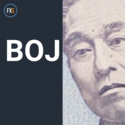Main focus on the drop in 5Y5Y inflation expectations that are again far below the ECB’s 2%-target
The lower oil price and stronger EUR are threatening the ECB’s outlook for higher inflation
Core inflation has jumped recently but there is a looming risk of indirect effects of the lower oil price
The ECB is likely to express concern about spill-over effects from weakness in China and the equity sell-off
Domestic demand is still looking to strengthen but any downside risk will be monitored closely
See the five charts illustrating why we expect the ECB to express a dovish stance at the September meeting
See the five charts we believe the ECB will consider before stepping up its monetary easing
Overall we expect the ECB to sound dovish and slightly worried at its upcoming meeting on 3 September. The lower oil price together with the stronger effective EUR are challenging the ECB’s outlook for a sustained adjustment in the inflation path and, looking at the 5Y5Y inflation-linked swap rate, inflation expectations do not seem well anchored.
Already in the introductory statement we expect a more dovish tone from Draghi. Firstly, we expect him to include a sentence emphasising the open-endedness of the QE programme and secondly, we believe he will add that the ECB is ready to use all available instruments if needed. Moreover, Draghi is likely to put a lot more focus on the downside risks to the economic outlook following the latest developments in China together with the sell-off in equities.
Currently, we see a low probability of the ECB delivering imminent easing and we believe the ECB will first attempt to improve the inflation outlook by verbal intervention. Related to this we have listed five factors including core inflation and activity figures, which we believe the ECB will monitor closely and which in our view need to start to deteriorate before the ECB decides to ease further.
If some of these factors start to worsen, we expect the ECB to step up its easing. In that case we view it as most likely that the ECB will extend the QE programme beyond September 2016, although it is also possible that it scales up the monthly asset purchases as the summer front-loading has already shown that the programme implementation is flexible.
The market is increasingly speculating on the ECB increasing its asset purchases and the theme is likely to continue based on a dovish stance from the ECB. The ECB’s inflation projection for 2017 could be crucial for how the market reads the ECB. We expect a slightly lower forecast for 2017, mainly driven by the lower oil price. However, the updated projections are based on a cut-off date in mid-August, hence they do not include the latest decline in the oil price and the strengthening of the EUR, implying they are too optimistic when released. Consequently, even if the ECB ends up being less dovish than the market expects, speculation about more easing could soon return.
This publication has been prepared by Danske Bank for information purposes only. It is not an offer or solicitation of any offer to purchase or sell any financial instrument. Whilst reasonable care has been taken to ensure that its contents are not untrue or misleading, no representation is made as to its accuracy or completeness and no liability is accepted for any loss arising from reliance on it. Danske Bank, its affiliates or staff, may perform services for, solicit business from, hold long or short positions in, or otherwise be interested in the investments (including derivatives), of any issuer mentioned herein. Danske Bank's research analysts are not permitted to invest in securities under coverage in their research sector.
This publication is not intended for private customers in the UK or any person in the US. Danske Bank A/S is regulated by the FSA for the conduct of designated investment business in the UK and is a member of the London Stock Exchange.
Copyright () Danske Bank A/S. All rights reserved. This publication is protected by copyright and may not be reproduced in whole or in part without permission.
Recommended Content
Editors’ Picks
AUD/USD stands firm above 0.6500 with markets bracing for Aussie PPI, US inflation

The Aussie Dollar begins Friday’s Asian session on the right foot against the Greenback after posting gains of 0.33% on Thursday. The AUD/USD advance was sponsored by a United States report showing the economy is growing below estimates while inflation picked up. The pair traded at 0.6518.
EUR/USD mired near 1.0730 after choppy Thursday market session

EUR/USD whipsawed somewhat on Thursday, and the pair is heading into Friday's early session near 1.0730 after a back-and-forth session and complicated US data that vexed rate cut hopes.
Gold soars as US economic woes and inflation fears grip investors

Gold prices advanced modestly during Thursday’s North American session, gaining more than 0.5% following the release of crucial economic data from the United States. GDP figures for the first quarter of 2024 missed estimates, increasing speculation that the US Fed could lower borrowing costs.
Ethereum could remain inside key range as Consensys sues SEC over ETH security status

Ethereum appears to have returned to its consolidating move on Thursday, canceling rally expectations. This comes after Consensys filed a lawsuit against the US SEC and insider sources informing Reuters of the unlikelihood of a spot ETH ETF approval in May.
Bank of Japan expected to keep interest rates on hold after landmark hike

The Bank of Japan is set to leave its short-term rate target unchanged in the range between 0% and 0.1% on Friday, following the conclusion of its two-day monetary policy review meeting for April. The BoJ will announce its decision on Friday at around 3:00 GMT.